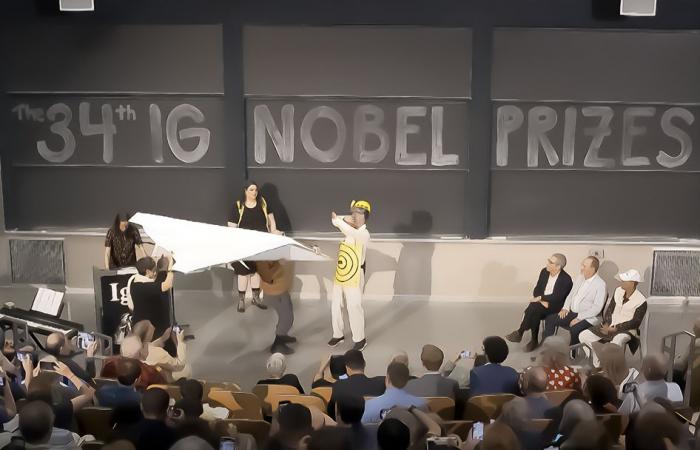This media exposure also marks the memories of Marie-Christine Cadiergues. The teacher-researcher
was awarded the Ig-Nobel Prize in 2008, for an article based on his thesis defended in 2000 – the year of the Olympic Games in Sydney, Australia. A detail that is important: the article showed that fleas living on dogs are capable of jumping better, both in height and length, than their cousins living on cats. “ At the time, I had posted a little cartoon on my office door representing the Flea Olympics! », recalls the scientist, already well aware of the comical nature of her work. But this research also has implications, particularly in terms of contamination between dogs and measures to combat the diseases that these fleas can carry.
15 years ago, the Ig-Nobel prizes were perhaps less known than today, but Marie-Christine Cadiergues still passed “ at least a month and a half » to respond to journalists by email, by telephone, on the radio – “ it didn’t stop! “. In 2010, she also participated in the “Ig-Nobel tours”, organized almost every year in Europe. The opportunity to talk about award-winning research in English, Swiss or Nordic universities, during conferences similar to the major award ceremony organized each year at Harvard or MIT
. A way to attract the public to science through humor. She had come across a sword-swallowing laureate there! A serious research like any other: it was a question of evaluating the damage to the esophagus that the practice could cause.
Good for the CV?
Since then, the media pressure has subsided, even if the subject comes up regularly in the fall, when the prize is announced. “ An older colleague told me that this little notoriety would last a long time and he was right: the proof is that you contacted me after all these years. », laughs the researcher.
This colleague, moreover, did not find the price unfavorable for the institutions or for the person awarded the prize » and she herself did not « never felt mockery or inconvenience » to this reward. However, before accepting it, she was put in touch with previous winners to find out more: “ They all advised me to say yes but not to indicate it in my CV, as they themselves did not indicate it. “, she testifies. When she finished her thesis, she took advice. But ” I think I will add it to my next activity report! With my career well established and my permanent position, I am less hesitant than when I was younger. ».
Health






